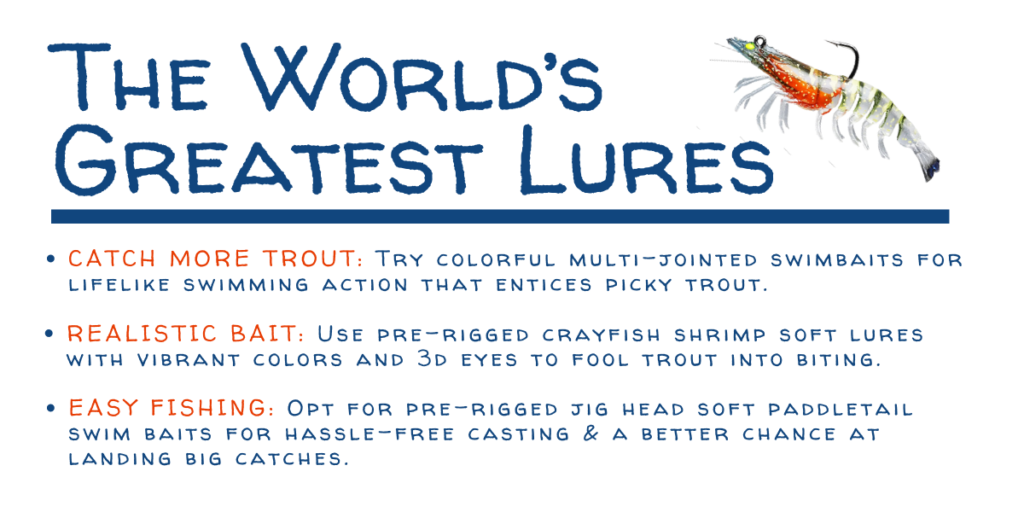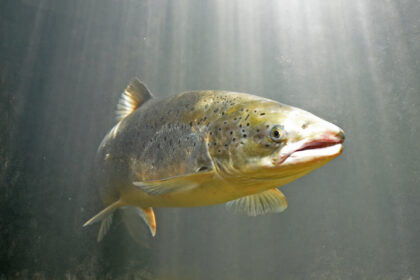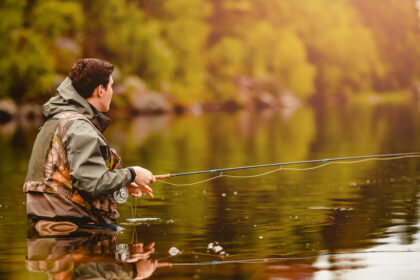Becoming a trout fishing guide requires a combination of fishing skills, knowledge, permits, and business acumen.The following are some general steps on what it takes a trout fishing guide:
- Fishing Skills and Knowledge: You should have a deep understanding of trout fishing, including different species of trout, their behavior, habitat, and various fishing techniques. Experience as an accomplished angler is essential.
- Get Licensed: Research the specific regulations and requirements for becoming a fishing guide in your area. This may involve obtaining a fishing guide license or permit from the relevant local or state agency. Regulations can vary widely by location, so be sure to understand and adhere to all licensing requirements.
- CPR and First Aid Certification: Many guide services require guides to be certified in CPR and first aid. It’s a crucial safety measure for both guides and clients.
- Boating Skills (If Applicable): If you plan to operate a fishing boat or drift boat, you may need to obtain a boating license or certification. Knowledge of water safety and boat operation is essential.
- Local Knowledge: Gain an in-depth knowledge of the local fishing dynamics. This includes fishing spots, regulations, seasons, and fishing conditions in your area. This local expertise is a key selling point for clients.
- Build a Reputation: Start by fishing on your own and building a reputation as a skilled angler. Catching a variety of fish and understanding their habits will be a valuable experience.
- Guide Training: Consider taking a fishing guide training program or courses to learn about guiding techniques, customer service, and safety. These programs can help you hone your skills as a guide.
- Business Plan: Develop a business plan that outlines your target market, pricing, marketing strategy, and any additional services you plan to offer (e.g., gear rental, transportation).
- Insurance: Consider purchasing liability insurance. This helps protect yourself and your clients in case of accidents or injuries during fishing trips.
- Equipment: Invest in quality fishing gear, boats (if necessary), and safety equipment. Ensure you have all the necessary equipment for your clients to use during their trips.
- Promotion and Marketing: Create a professional website, business cards, and promotional materials. Use social media and online listings to market your guide services.
- Customer Service: Outstanding customer service is crucial for repeat business and positive reviews. Ensure that your clients have a memorable and enjoyable fishing experience.
- Network: Join local fishing and guide associations. This connects you with other guides and stay informed about industry trends and regulations.
Becoming a trout fishing guide is a rewarding but challenging venture. Success often depends on building a strong reputation. Also important is developing a loyal client base and continuously honing your guiding and fishing skills. Always adhere to local fishing regulations and promote ethical and sustainable fishing practices to protect the environment and trout populations.


What is the Salary of a Trout Fishing Guide?
The salary range for a trout fishing guide can vary widely. Factors such as location, experience, demand for services, and the guide’s reputation are all relevant. Additionally, some fishing guides operate independently, while others may work for established outfitters or guide services.
The salary range for trout fishing guides, can be quite diverse. In many cases, guides earn income through a combination of wages, tips, and possibly a share of the fees charged for guided trips. Here are some general considerations:
- Location: Guides in popular fishing destinations or regions with a high demand for guided fishing trips may command higher fees.
- Experience and Reputation: Experienced guides with a good reputation for putting clients on fish and providing an enjoyable experience may be able to charge higher rates.
- Seasonal Nature: Fishing guides often work seasonally, and their income may be influenced by the duration of the fishing season in their area.
- Type of Services: Some guides may offer additional services, such as instruction on fly fishing techniques, which could impact their earning potential.
- Independence vs. Employment: Independent guides who own their own business may have different income structures compared to those employed by outfitters.
According to the website Salary.com, the salary range for a fishing guide job is from $35,060 to $43,801 per year in the United States. It’s advisable to research the specific region or area where you are interested in working. It is also wise to network with other guides to get a sense of the local market conditions. Additionally, contacting local outfitters or guide services and inquiring about potential employment or contract opportunities can provide more specific information on salary expectations in that area.

In Summary
Becoming a trout fishing guide can be a deeply rewarding and enjoyable career! For those who are passionate about fishing and also those who enjoy teaching others. It allows them to share their passion for fishing, connect with nature, and create memorable experiences for clients. Like any career choice, it comes with its challenges and considerations. Before diving in, thoroughly research the industry. Assess your own skills and interests, and perhaps even consider gaining some experience by working with an established guide or outfitter.




